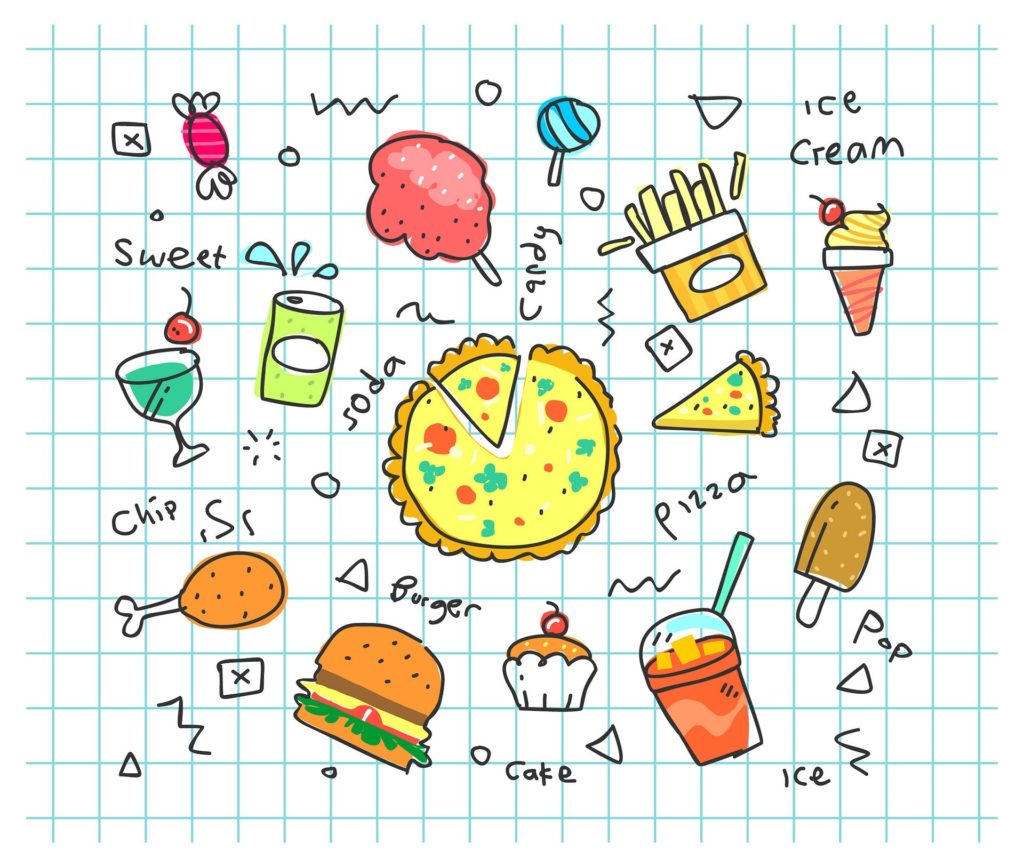Food and mood are closely related at all levels. We eat not only to satisfy our hunger but also to satiate our emotions on several occasions. Many people, during the times of stress, boredom, loneliness, frustration, and similar negative emotions, like to indulge in their comfort foods. In general, comfort food is something remarkably high in calories. High sugars, high salts, high fats or just a mixture of all this – yes, that is the recipe of most of our comfort foods!
Interestingly, stress kills appetite if it is for a short term. However, if it persists for long, a variety of hormones are released in the body which make us eat more than our usual appetite. Moreover, personal factors such as memories and previous experiences make us crave for specific food items during stressful times. Till the time such cravings are under moderation and do not lead to personal distress, we can let them be. However, if they lead to physical health problems such as obesity, high lipids, diabetes, hypertension, or mental health problems such as distress, guilt, and shame, we must accept the problem and start looking for a solution.
Stress eating is also a problem when it becomes repetitive and compulsive. It not only adds extra kilos to the body weight, it also modulates the brain in such a manner that we get into this apparently uncontrollable vicious cycle of overeating and repenting. Comfort food releases certain happy hormones in the brain, which seemingly distract from the acute stress, at least for a little while. However, it is only a temporary distraction and not a real solution to the existing stress. Evidently, we need to find the real way out of the stress by more than just eating our favourite food. Besides, there is an added stress of guilt which worsens the whole experience after the satiety sets in!
To break the cycle of stressed –> overeating –> stressed again, one must differentiate between the real hunger and the stress cravings!
- Real hunger is a slowly building process whereas stress cravings set in very quickly.
- Craving comes as an impulse, stays for some time, and goes away if it is not fed or one distracts away from it. Real hunger will stay till the time food is consumed.
- Real hunger entertains variety of food items whereas stress cravings are extremely specific. In the latter, one just wants to have that one thing which the mind has pictured.
- Real hunger is not associated with guilt or repentance whereas stress cravings are almost always associated with guilt afterwards.
- There is a better understanding of tummy fullness after a real hunger is fed. Stress cravings allow for mindless continued eating and the satiety sets in quite late despite the physical fullness.
A curious entity called the Night Eating Syndrome (NES) has recently caught attention of the mental health professionals. NES is an eating disorder with a phase delay in the circadian pattern of eating characterised by –
- Evening overeating (defined as taking 25 percent or more of the daily calorie intake after the evening meal), OR
- Night-time awakenings associated by nocturnal munching snacks, OR
- both A and B
Sadly, NES has a strong genetic preponderance, so it often runs in the families. It is highly associated with the following conditions –
- Obesity (Prevalence of NES is as high as 10 to 20 percent in obese individuals)
- Stress (75% sufferers of NES link the onset of their disorder to a stress related event in their life)
- Mental Illness (75% cases of NES have an associated mental health problem: depression was found in 47 percent, anxiety in 37 percent, substance dependence in 24 percent)
Fortunately, stress eating can be managed successfully with the right medication, behavioural techniques, and lifestyle modifications. The only trick to get over it is to see an expert, discuss openly and honestly the problems and dedicatedly follow the management plan.
Wishing you the best of mental health today and always!
Dr Apala


This article has been shared at the right time 🙂 esp with we being locked down due to current condition , lot of the anxiety n uncertainty is addressed through eating.. I have been doing a lot of night eating bcoz of blotched up circadian rhythm.
Thank you Niharika ! You take care and get back to normal rhythm soon.
Thank you so much Dr Apala.😊
Thank you so much for this this article, this is what I need to update myself in this lockdown.
Infact, After an unpleasant experience, such as an argument, I do eat even if I was not feeling hungry .Sometime I crave specific foods when I feel upset, also I feel the urge to eat in response to outside cues like seeing food advertised on television.
Thank you Ashwini. Take care!
Good information and analysis…
In this crisis situation it is very easy to indulge in stress eating.. food is currently the only entertainment…
I feel going for a walk or doing some physical activity like washing utensils or just folding clothes help reduce the incidence of stress eating.. and also watching a workout video online demotivates me to stress eat..
A glass of water also help reduce stress hunger pangs…
And at night..just going to sleep is the only thing to reduce mindless eating
Thank you! Yes, you are absolutely right. In fact, we prescribe 5 Ds for the control of cravings –
1. Deep Breaths
2. Drink plenty of fluids (non alcoholic, non aerated, non caffeinated)
3. Distract your mind
4. Delay the urge
5. Discuss with a loved one.
I am happy that you have covered almost all of these in your examples. Take Care
Very Informatic article on stress eating which i personally also experience few times. Though for me personally when i feel stressed sometimes i feel satiated or extremely hungry. Consequently it affects bowel movement also.